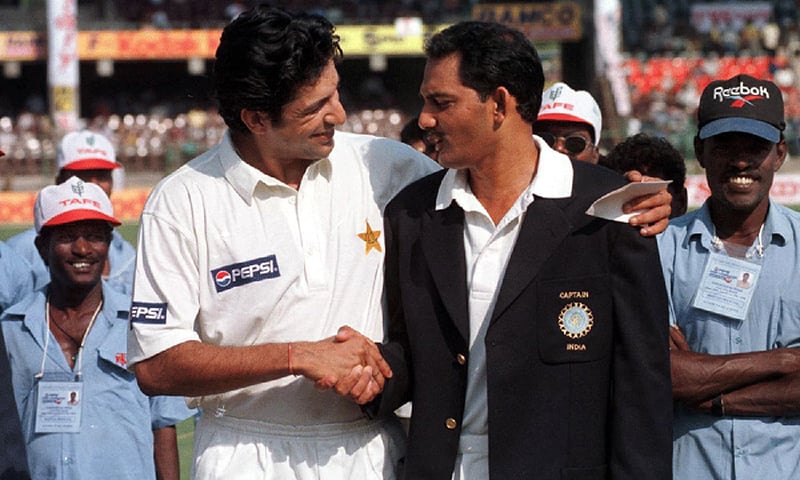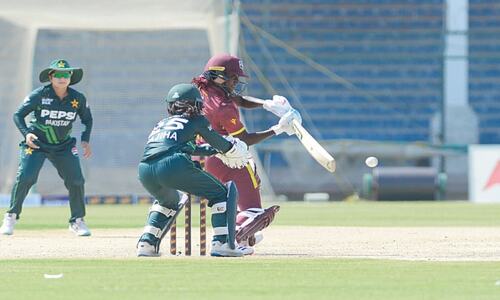Sport over politics: India shouldn’t forget Pakistan’s 1999 tour

The Narendra Modi-led government in India may have succeeded, for now, in boosting their popularity through unfavorable statements against Pakistan, but the damage their policies have inflicted on cricket between the two nations, are of a more serious and long-lasting nature.
Last year, under Najam Sethi, the Pakistan Cricket Board (PCB) and the Board of Control for Cricket in India (BCCI) had signed a Memorandum of Understanding under which they were scheduled to play six series in the 2015-2023 Future Tours Programme, but all were subject to clearance from New Delhi.
In February this year, the BCCI informed the PCB that it required fresh permission from the newly elected Indian government on the MoU. Despite PCB chief Shaharyar Khan asking his Indian counterparts to take their government’s word on the agreement, the Indian board seems to be deliberately prolonging the issue.
Anurag Thakur – BJP’s Member of Parliament and Secretary of the BCCI – always manages to find one way or another to be in the news. When he is not making attempts at blaming the Gurdaspur attack on Pakistan, he is making statements of this sort:
Cricket is the ultimate casualty in this war of words.
See: Don’t hold your breath, India and Pakistan are not playing anytime soon
As a result of which, unfortunately, the public in Pakistan, too, is now beginning to question whether a series with India is really that crucial; even as the PCB keeps reiterating its efforts to make such a series possible.
That is truly unfortunate, because – no matter how harsh it may sound to my friends in India – Pakistan has always played a better role in differentiating between sports and politics.
Remember the 1999 tour?
Shiv Sena – which holds sway in the Indian state of Mahrashtra – was against Pakistan’s visit and all that they did to disrupt the tour remains no secret.
Read: Misbah calls for Pakistan-India series revival
From digging up the pitch of Ferozshah Kotla in New Delhi to carrying out an attack at the Pakistan High Commission and hurling life threats at Pakistani players, the Shiv Sena left no stone unturned to stop Pakistan’s arrival.
Recalling one such incident, Shaharyar Khan (who was appointed as Pakistan’s manager for that tour), told a group of reporters in Lahore a day before, that Shiv Sena had gone to the extent of threatening to kill Pakistani players.
When Shaharyar narrated these reports to Pakistan’s captain Wasim Akram at the airport; as the team waited to board the flight, Wasim replied: “No, sir, we will go and play. Cricket is different and politics is different.”
And, right he was.
The moment Pakistan team stepped in India, it was an exemplary welcome. Cricket had won.





The first Test in Chennai had attracted an estimated 50,000 spectators a day (Wisden figures), the second Test in Delhi almost 40,000 a day. And by the time Pakistan travelled to Calcutta for the third Test, the environment was free from all political tension.
Also read: PCB to ask India for clear-cut response on series
That 1999 tour of Pakistan to India was about far more than winning and losing, as Wisden Almanack puts it.
It quotes an Indian writer as saying, “The doubting Thomases and the detractors who threatened to disrupt the series were silenced; the Indian government flexed its security muscle to put diplomacy in front, and give cricket the opportunity to defeat hatred, and hatred was soundly defeated.”
Atal Bihari Vajpayee, India’s then Prime Minister, certainly deserves credit in ensuring that politics did not interfere in sports.
The history of India-Pakistan rivalry tells us that whenever the two countries have let go of their egos and given peace a chance, there has been a tremendous turnaround.
1999 was one such tour; another was when India visited Pakistan in 2004 – just two years after the countries were on the brink of war.
This is not the only example where sports played a role in diffusing tension between countries.
It also happened for Ivory Coast when its star striker, Didier Drogba, publicly stated how 2006 FIFA World Cup helped in diverting the country's attention from civil war.
And let’s not forget April 1971, when China famously invited American ping-pong players to participate in an exhibition event. It was the first time since 1949 that Americans were allowed to enter China. With China’s ping-pong diplomacy, we saw American President Richard Nixon making a historic trip there, ending two decades of hostility between the two powers.
Similarly, cricket has always played its part in bettering India-Pakistan relations. Politicising this sport won’t do any good. If anything, shouldn’t political stakeholders, instead of further dividing each other, work on bridging differences through the sport?
Pakistan, as in the past, is ready to play; will India respond?















































